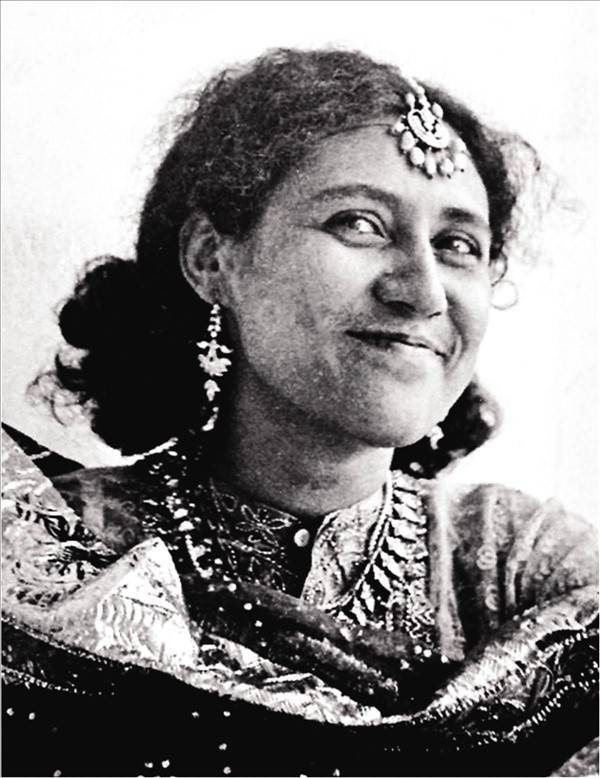
Rashid Jahan was a doctor, a member of the Communist Party, a committed political organiser, a founding member of the Progressive Writers’ Association, an active member of Indian Peoples Theatre Association (IPTA), a life-long campaigner for women’s rights and a free-spirited writer who heralded a new era in Urdu literature.
Born on August 25, 1905 in Aligarh, she was the eldest of five children. Sheikh Abdullah, her father, was a pioneer of women’s education in India and established the Women’s College at the Aligarh Muslim University, where Rashid Jahan had her early education. Talking about her years growing up in the midst of a family as eclectic and liberal as hers, Rashid Jahan once wrote, “We have slept on the mattress of women’s education and covered ourselves with the quilt of women’s education from our earliest consciousness.”
Rashid Jahan joined the Isabella Thoburn College in Lucknow in 1921 and three years later, she moved to Lady Hardinge Medical College in Delhi where she trained as a gynecologist. From Delhi, she joined the Provincial Medical Services and was posted to small towns across north India, from Bahraich to Bulandshahar and Meerut.
In 1931, she was posted in Lucknow. Here, after a brief flirtation with the Congress and a spell of wearing Khadi she found her true calling with the Communist Party, which she officially joined in 1933.
In Lucknow, Rashid Jahan truly blossomed and became the center of a circle of intellectually-charged and politically-driven young people. She met Sajjad Zaheer, Ahmad Ali, Kaifi Azmi, Ali Sardar Jafri, Majaz, and Sahibzada Mahmuduzzafar whom she married in 1934. It was here in Lucknow that the explosive Angarey was published in December 1932. Angarey contained five short stories by Sajjad Zaheer, two by Ahmad Ali, one by Mahmuduzzaafar, one short story and a play by Rashid Jahan. Given the provocative title and the deliberate defiance of existing literary norms by the four young writers, the book unleashed a storm of controversies and marked a turning point in the history of Urdu literature.
The book railed against social inequality, hypocritical religious authorities and the exploitation of women in a deeply patriarchal society.
The book was publicly condemned at the central standing committee of the All-India Shia Conference at Lucknow as a “filthy pamphlet” that had “wounded the feelings of the entire Muslim community.” The Urdu press called for a ban and clerics issued fatwas. Demonstrations were held outside bookstores and the publisher had to issue an apology and surrender unsold copies to the government. Within three months of its publication, the British had banned this book. Today, apparently just five copies of the original version exist.
In this book, Jahan contributed a three-page story titled Dilli ki Sair (A Tour of Delhi) on a burqa-clad woman watching life on a railway platform while she waited for her husband to turn up and take her home. She also contributed to Parde ke Peeche (Behind the Veil), a conversation between two women from affluent, respectable families.
Rashid Jahan died in Moscow in 1952 where she had gone for treatment for uterine cancer. She is buried in a cemetery there.
Born on August 25, 1905 in Aligarh, she was the eldest of five children. Sheikh Abdullah, her father, was a pioneer of women’s education in India and established the Women’s College at the Aligarh Muslim University, where Rashid Jahan had her early education. Talking about her years growing up in the midst of a family as eclectic and liberal as hers, Rashid Jahan once wrote, “We have slept on the mattress of women’s education and covered ourselves with the quilt of women’s education from our earliest consciousness.”
Rashid Jahan joined the Isabella Thoburn College in Lucknow in 1921 and three years later, she moved to Lady Hardinge Medical College in Delhi where she trained as a gynecologist. From Delhi, she joined the Provincial Medical Services and was posted to small towns across north India, from Bahraich to Bulandshahar and Meerut.
In 1931, she was posted in Lucknow. Here, after a brief flirtation with the Congress and a spell of wearing Khadi she found her true calling with the Communist Party, which she officially joined in 1933.
In Lucknow, Rashid Jahan truly blossomed and became the center of a circle of intellectually-charged and politically-driven young people. She met Sajjad Zaheer, Ahmad Ali, Kaifi Azmi, Ali Sardar Jafri, Majaz, and Sahibzada Mahmuduzzafar whom she married in 1934. It was here in Lucknow that the explosive Angarey was published in December 1932. Angarey contained five short stories by Sajjad Zaheer, two by Ahmad Ali, one by Mahmuduzzaafar, one short story and a play by Rashid Jahan. Given the provocative title and the deliberate defiance of existing literary norms by the four young writers, the book unleashed a storm of controversies and marked a turning point in the history of Urdu literature.
The book railed against social inequality, hypocritical religious authorities and the exploitation of women in a deeply patriarchal society.
The book was publicly condemned at the central standing committee of the All-India Shia Conference at Lucknow as a “filthy pamphlet” that had “wounded the feelings of the entire Muslim community.” The Urdu press called for a ban and clerics issued fatwas. Demonstrations were held outside bookstores and the publisher had to issue an apology and surrender unsold copies to the government. Within three months of its publication, the British had banned this book. Today, apparently just five copies of the original version exist.
In this book, Jahan contributed a three-page story titled Dilli ki Sair (A Tour of Delhi) on a burqa-clad woman watching life on a railway platform while she waited for her husband to turn up and take her home. She also contributed to Parde ke Peeche (Behind the Veil), a conversation between two women from affluent, respectable families.
Rashid Jahan died in Moscow in 1952 where she had gone for treatment for uterine cancer. She is buried in a cemetery there.

